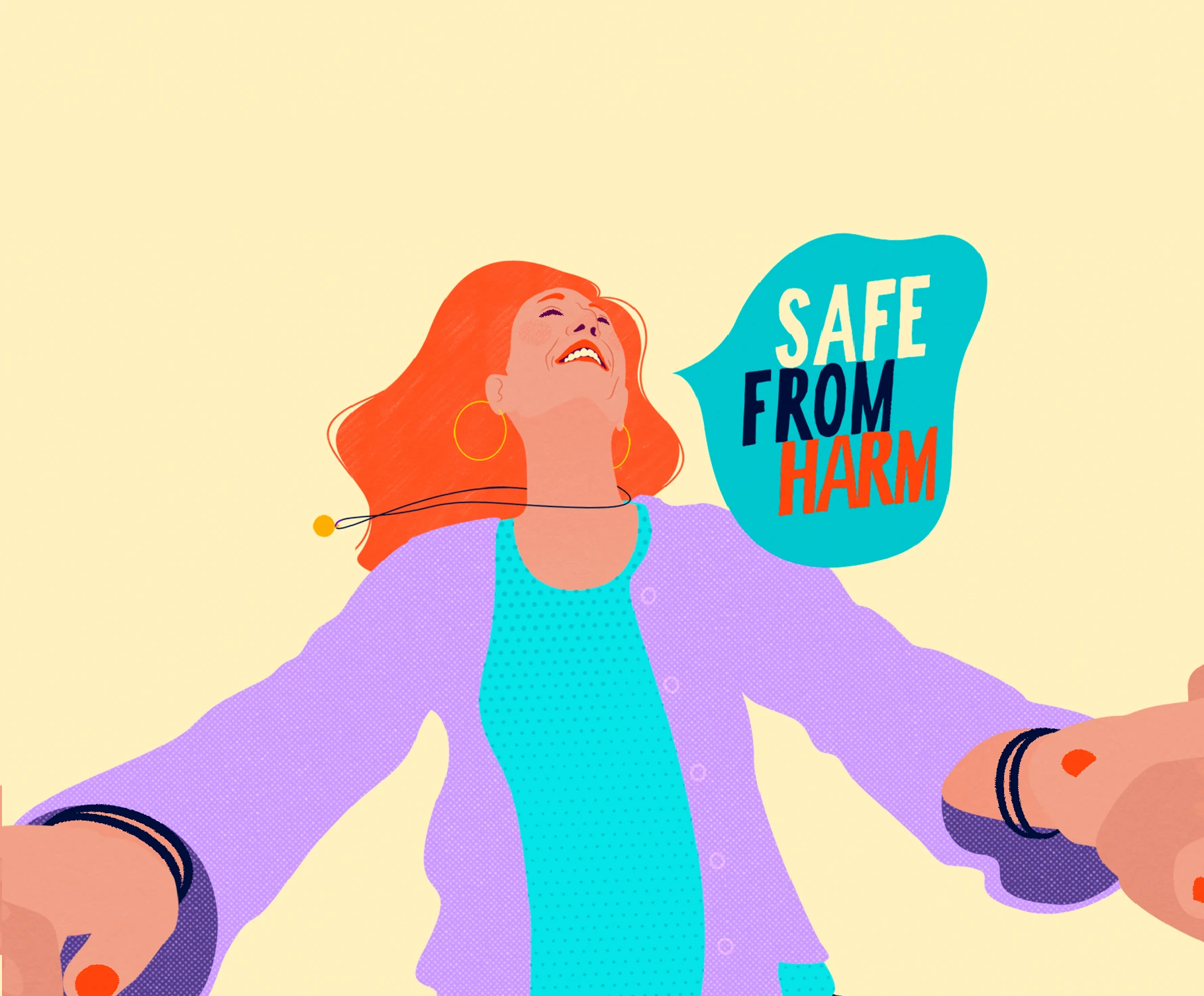Quick explainer on GBV
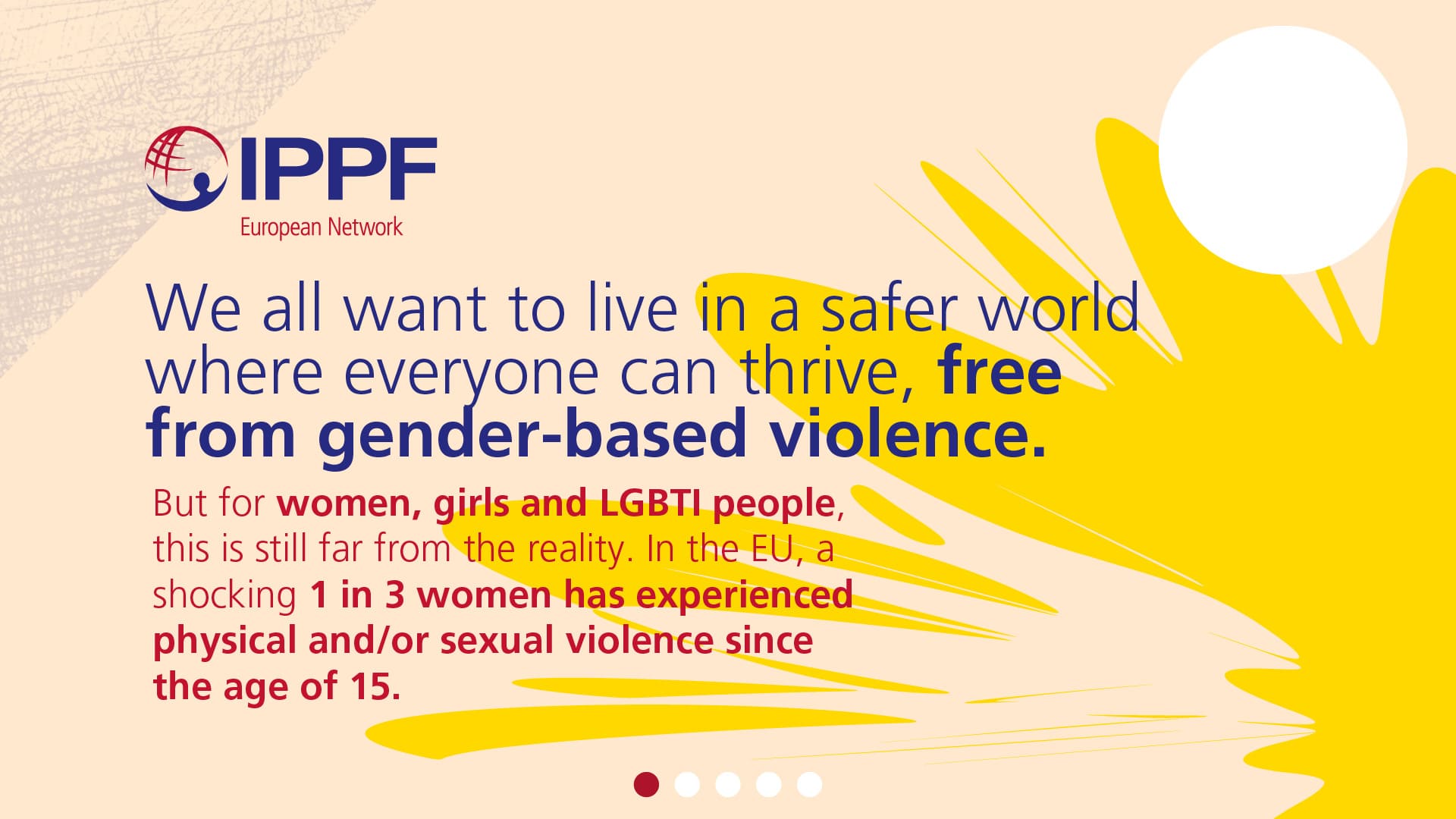
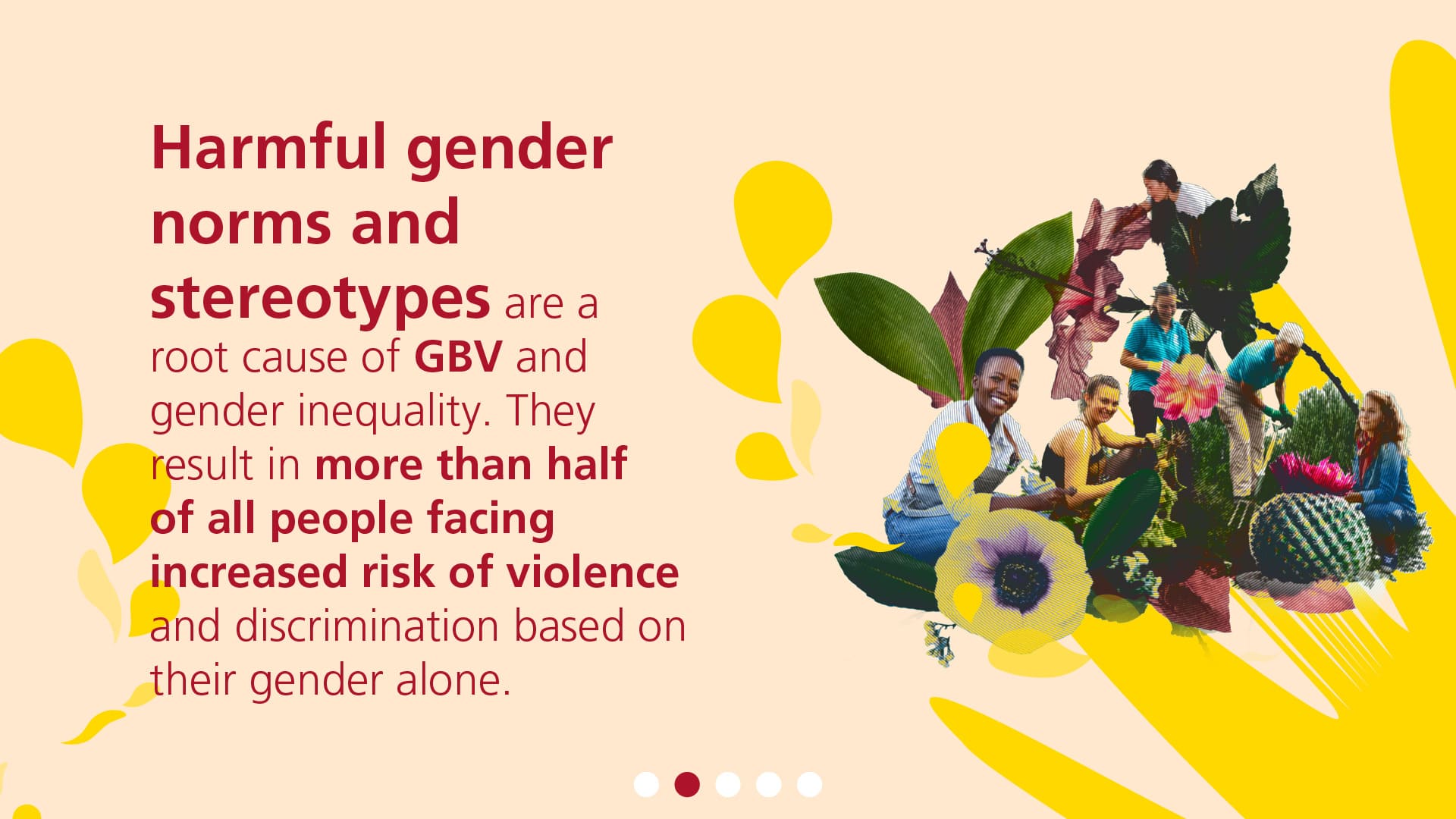
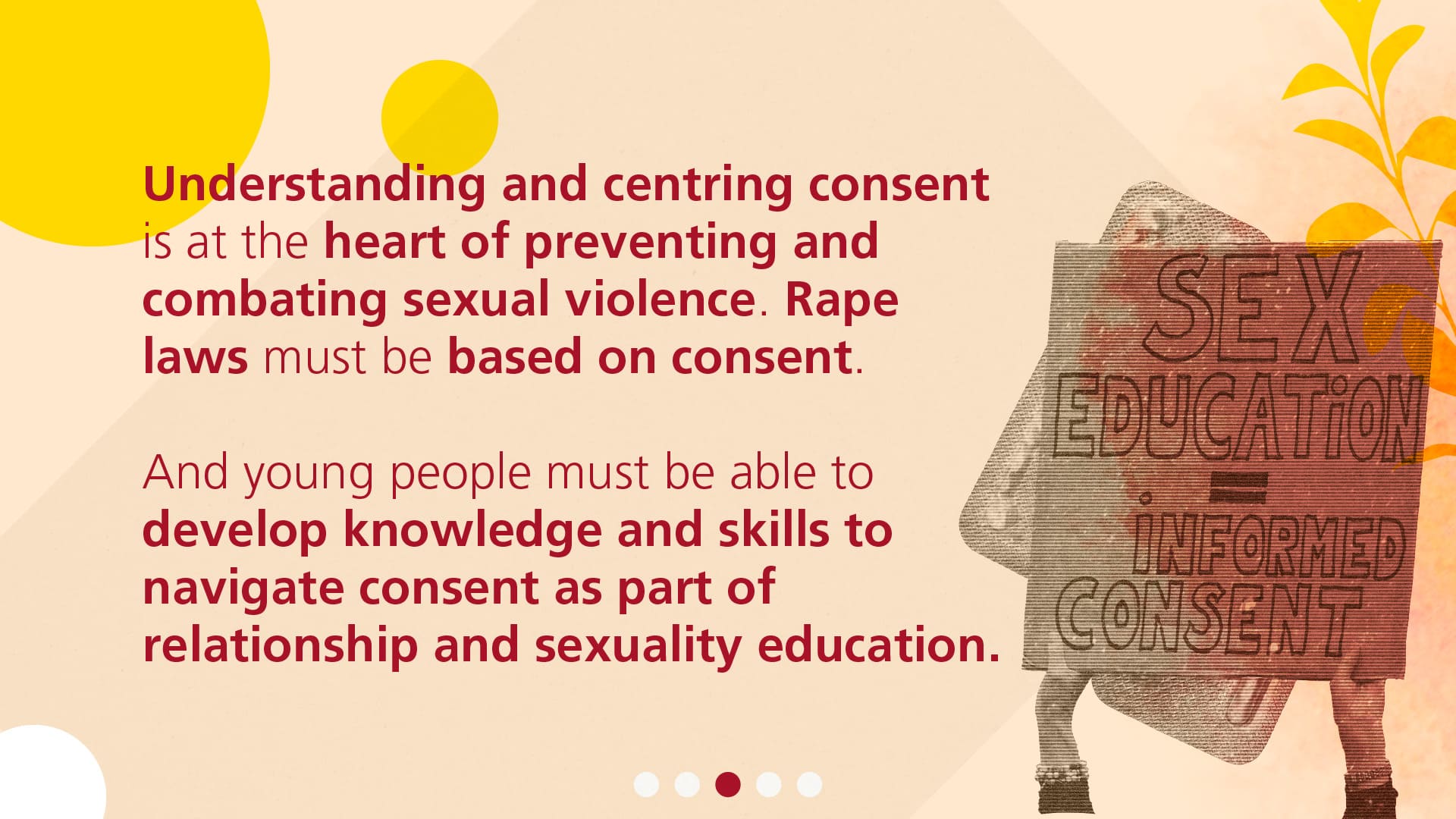
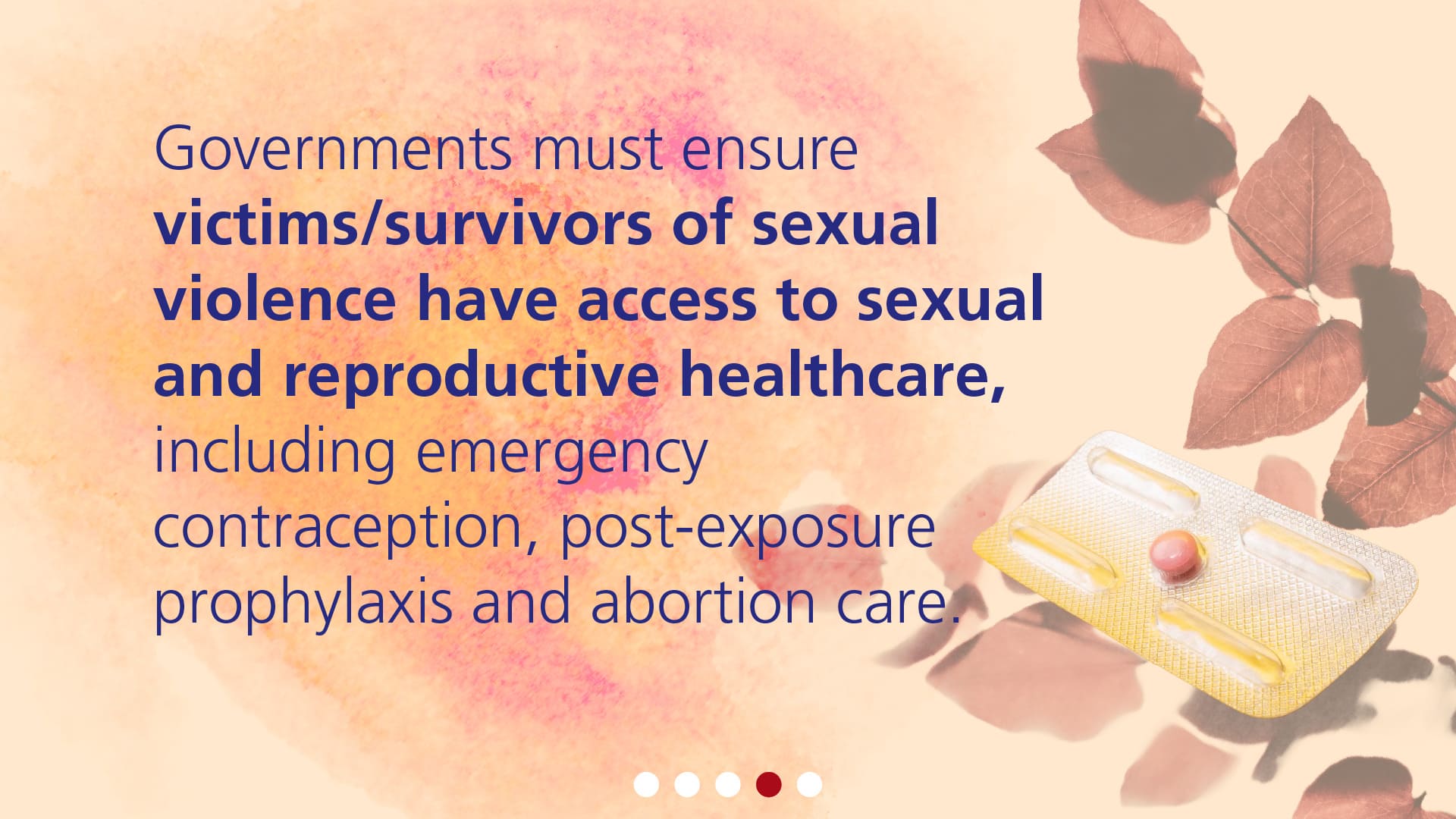
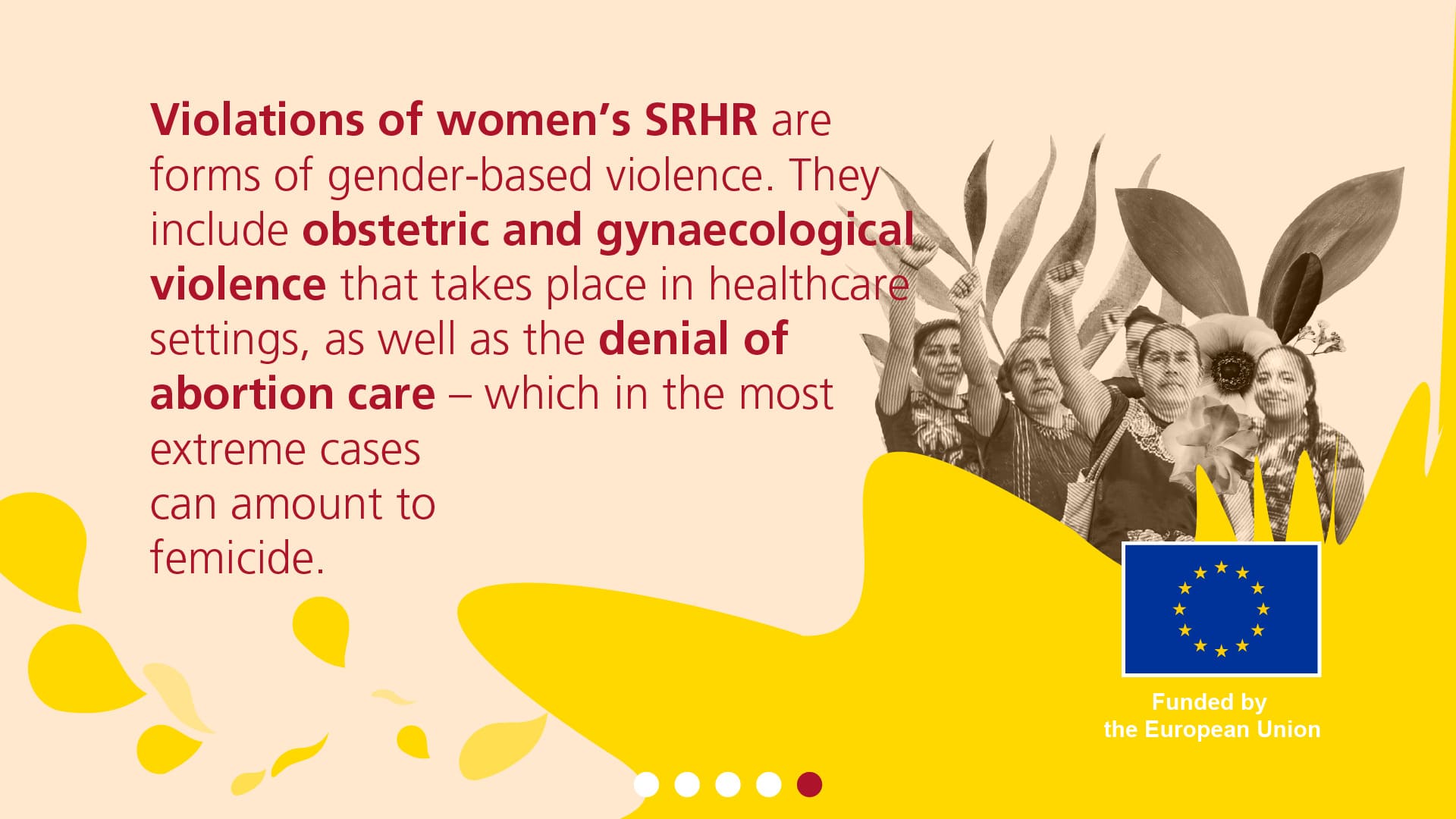
We all want to live in a safer world in which everyone can thrive, free from the harm and fear of gender-based violence. Yet for more than half of every community, this is not yet the reality. Women, girls and people of diverse sexual orientations and gender identities are disproportionately affected by violence on the basis of their gender alone. In the EU, a shocking third of women have experienced physical and/or sexual violence since the age of 15. This hurts individuals and families and diminishes our societies as a whole.
We can and must do a better job of combating gender-based violence, using solutions that we know are effective to prevent, protect, support survivors and ensure access to justice. In our professional and our private lives, we have a shared responsibility to help create more gender equal societies in which everyone is safe from harm and treated with dignity.
Safe From Harm is an IPPF EN campaign to raise awareness of the policy measures that we want to see prioritised in the fight against gender-based violence in the European Union, with a focus on the legal and cultural factors necessary to realise people’s sexual and reproductive health and rights.
The EU has a crucial role to play in standing up for the safety of all people throughout its Member States from all forms of gender-based violence. Currently, its ambitious and historic proposal for a binding directive on violence against women and domestic violence is a powerful opportunity to do just that.
A groundbreaking EU proposal
On International Women’s Day 2022, the European Commission proposed the first ever EU law to combat violence against women and domestic violence. This proposes a wide range of crucial measures to combat violence at all stages, from prevention to prosecution.
We are happy to see actions included in the following areas:
• Recognition of the need to strengthen sexuality education as a key prevention measure.
• Criminalisation of rape based on the absence of consent, and of female genital mutilation, in line with the Istanbul Convention.
• Criminalisation of online violence.
• Recognition that intersectional forms of discrimination mean some groups of women are particularly at risk or have specific needs that must be addressed.
You can read more in our initial statement on the proposal here.
The EU proposal is a bold and important step towards combating gender-based violence, and we urge politicians to adopt it as swiftly as possible. In addition, there are a number of key measures that should be strengthened in the legislation in order to truly keep all people safe from harm and ensure justice for all. Read on to find out more!
Our current legal systems, structures and cultural norms are failing to uphold the safety and bodily integrity of women, girls and people of diverse sexual orientations and gender identities throughout Europe and around the world.
Patriarchal and outdated laws on sexual violence in many countries disregard the realities of how rape works, place blame on victims/survivors and provide limited access to justice. Women in all their diversity experience violence in obstetric and gynaecological healthcare settings, while major violations of their sexual and reproductive health and rights, such as the denial of abortion care, are not recognised as forms of gender-based violence. Harmful gender stereotypes everywhere normalise male violence against women and girls, and too many young people don’t get the opportunity to develop the skills they need to build safe, consensual and pleasurable intimate lives. Meanwhile, survivors of sexual violence do not systematically have access to life-saving sexual and reproductive healthcare.
But if we take action to redesign our laws and our cultures to ensure that all people can live free from violence and fear, and have full autonomy over their sexual and reproductive lives, we can create societies where everyone is able to flourish.
Solutions for building safer societies that ensure justice for all
Together we can design legislation that keeps people safe from harm.
We can ensure our laws and policies recognise and address all forms of sexual and gender-based violence, and reflect how it really works, both in private and institutional/medical settings.
We can pay particular attention to meeting the needs of people at greatest risk, including undocumented migrants, women sex workers, and women fleeing armed conflict.
And we can make sure every young person has access to comprehensive relationships and sexuality education that provides them with vital knowledge and skills relating to consent and gender norms.
Fundamentally, we need to use all the tools we have – education, legislation, information, training of professionals, awareness-raising – to create cultures of consent in which all of us, especially boys and men, have the skills to empathise, to understand and respect boundaries and to express the full range of our emotions.
The sections that follow focus on specific measures that IPPF EN supports in the fight against gender-based violence.
Only yes means yes : Centring consent in law and culture
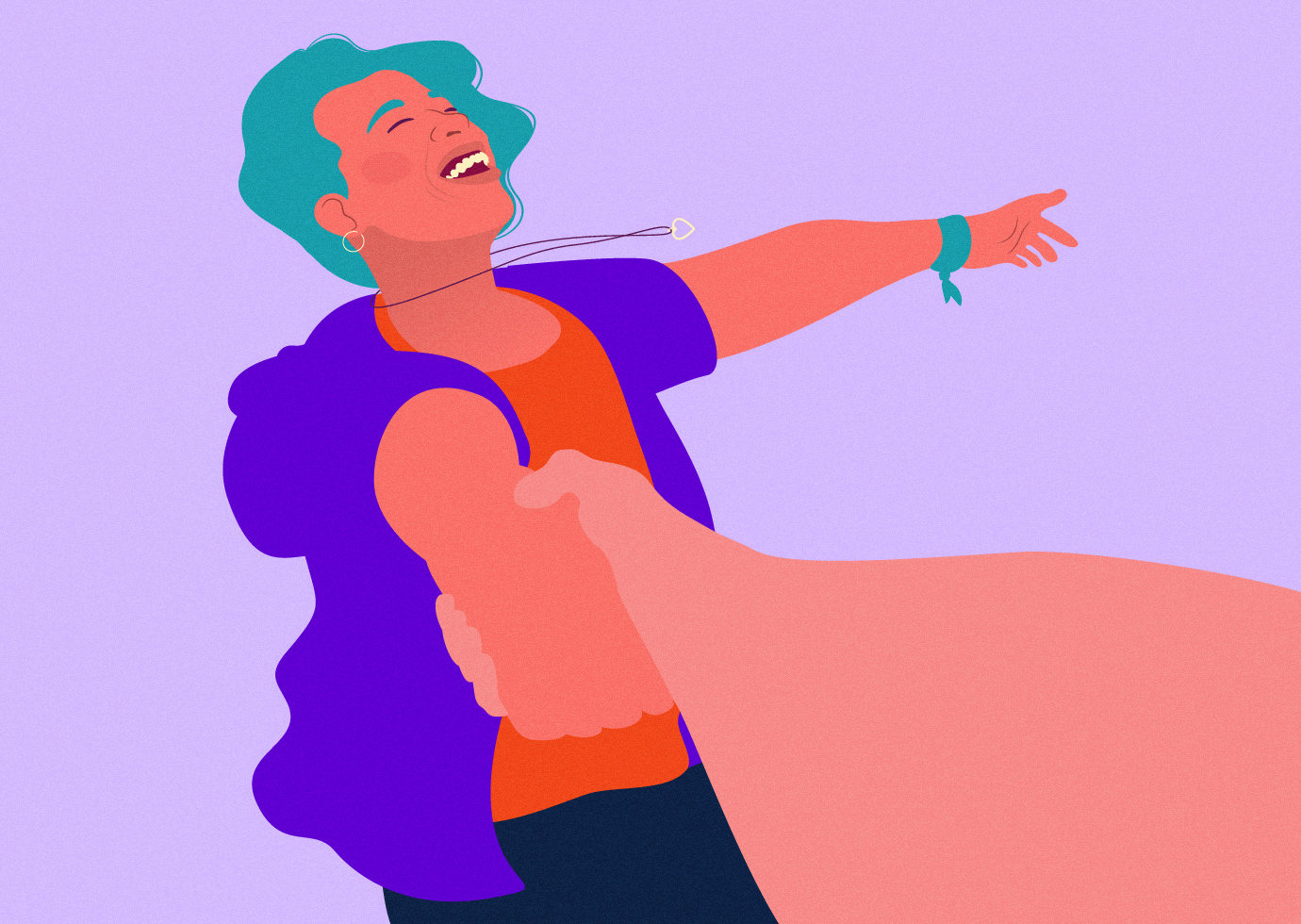
When we design our laws to use a consent-based definition of rape, we ensure greater access to justice for victims/survivors of sexual violence. In recent years, several EU countries have adopted sexual violence laws that centre consent. But shockingly, almost half of Member States still have outdated, patriarchal legislation that requires force or threats to have been used in order for rape to be punishable, a definition which fails to meet international human rights standards.
Laws that do not centre consent are harmful to victims/survivors because they often leave certain types of rape unpunished, overlook the fact that a person can rape without the use of physical force or violence, contribute to rape myths and perceptions that it is the responsibility of victims/survivors to protect themselves from being raped, and gravely limit the extent to which crimes of rape can be successfully prosecuted.
Overall, force-based definitions ignore the realities that many women and girls and other survivors face in the context of rape or sexual assault and enable significant impunity for perpetrators. Our focus should instead be on whether free and informed consent was given, and on how the alleged perpetrator sought to determine this.
IPPF EN welcomes the consent-based definition included in the proposed EU directive on violence against women and domestic violence, which is in line with the 2008 Istanbul Convention, the “gold standard” in the fight against gender-based violence. All EU Member States whose legislation still includes a force-based definition must urgently take action to include this essential measure.
We carried out interviews with experts in three EU countries – Sweden, Spain and Belgium – that have adopted consent-based definitions of rape, to hear how this crucial step forward was achieved, how it is contributing to the fight against gender-based violence, and how legislative reform must go hand-in-hand with education and cultural change in order to create safer and more gender-equal societies.
Read more
Combating gynaecological & obstetric violence

When we think about gender-based violence, we don’t often think about it being perpetrated in healthcare settings, by the very professionals who are meant to take care of their patients. But unfortunately, psychological, physical and sexual violence does take place in medical contexts, particularly gynaecological and obstetric ones, around the world. This is a result of patriarchal and male-dominated structures and health systems, and deeply rooted in harmful gender, social and cultural norms.
Gynaecological and obstetric violence takes many forms, ranging from mistreatment, abuse, neglect, intimidation, humiliation, non-consensual medical acts, medically unnecessary and harmful procedures, and delay or refusal of care. It is exacerbated when patients experience intersecting forms of discrimination, meaning that particular groups, such as women of colour, Roma women, women living with a disability and LBTIQ women, are at greatest risk of being harmed.
Gynaecological and obstetric violence has been legally recognised as a criminal offence and a form of gender-based violence in some Latin American countries for 15 years. But in Europe, no national government has so far put in place legislation specifically to address it. This means that currently, people living in EU Member States have few legal protections or means of redress.
To prevent violence from being perpetrated by healthcare providers, including in gynaecological and obstetric settings, we must change laws and raise awareness to ensure that our societies – including patients and health professionals – recognise that this is a form of gender-based violence. We must ensure that respect for people’s choices is at the heart of policies, and train healthcare professionals to sensitize them about informed consent and intersectional discrimination. And we must ensure that women in all their diversity know their rights and how to exercise them in healthcare settings.
Read more
Comprehensive sexuality education keeps young people safe

Harmful gender stereotypes are a root cause of gender-based violence. They perpetuate inequalities that stem from unbalanced power dynamics, for example when societies expect young men to suppress their emotions and demonstrate strength, or young women to be polite and accommodating to others, even in situations where they feel uncomfortable.
Globally there is more and more evidence that comprehensive sexuality education is an effective strategy for protecting young people from gender-based violence. Education that transforms their view of gender, power and relationships also supports their development of crucial skills relating to communication, boundaries and consent. It helps them to break free of harmful stereotypes, recognise violence in their own communities, and take action to prevent it. IPPF EN members and youth volunteers have been leading the charge throughout Europe for many years, developing and delivering comprehensive sexuality education curricula and advocating for policy measures to ensure its provision throughout childhood and adolescence.
We owe today’s young people the protections that comprehensive sexuality education offers. By expanding access, we can also contribute over the longer term to building the cultures of consent that we all need throughout our societies, alongside legal measures, to combat sexual and gender-based violence and achieve gender equality.
The EU’s draft directive on violence against women and domestic violence affirms the vital role of sexuality education in combating violence and enabling young people to fulfil their potential. But to be truly effective, it also needs to require a comprehensive approach that goes beyond biology and includes essential issues like consent and gender norms. We urge the EU institutions to further strengthen the draft legislation to ensure that sexuality education is where it belongs, at the heart of prevention measures throughout the Member States.
Read more
Stay tuned for more on the crucial measures we want to see implemented in the fight against gender-based violence in the European Union!
To join our #SafeFromHarm campaign, you can find communications materials here.

This work is co-funded by the European Union through the Citizens, Equality, Rights and Values Programme.
Views and opinions expressed are those of the author (s) only and do not necessarily reflect those of the European Union or European Education and Culture Executive Agency. Neither the European Union nor the granting authority can be held responsible for them.







